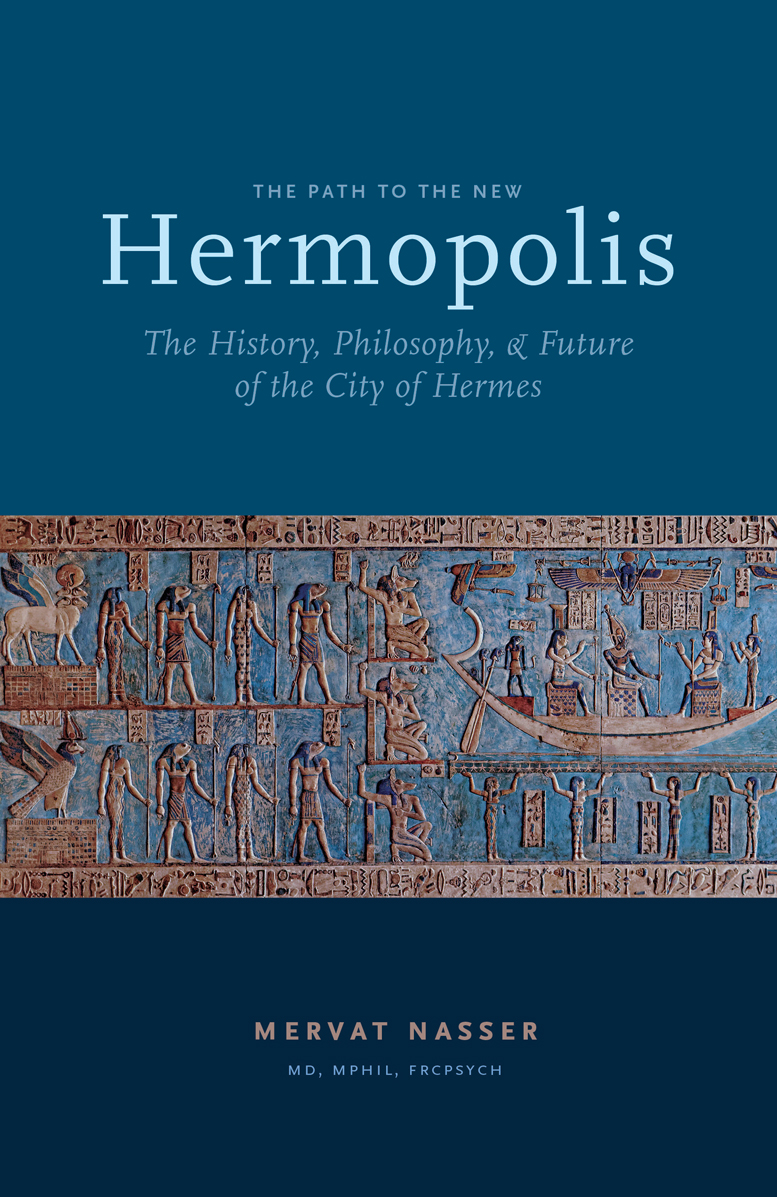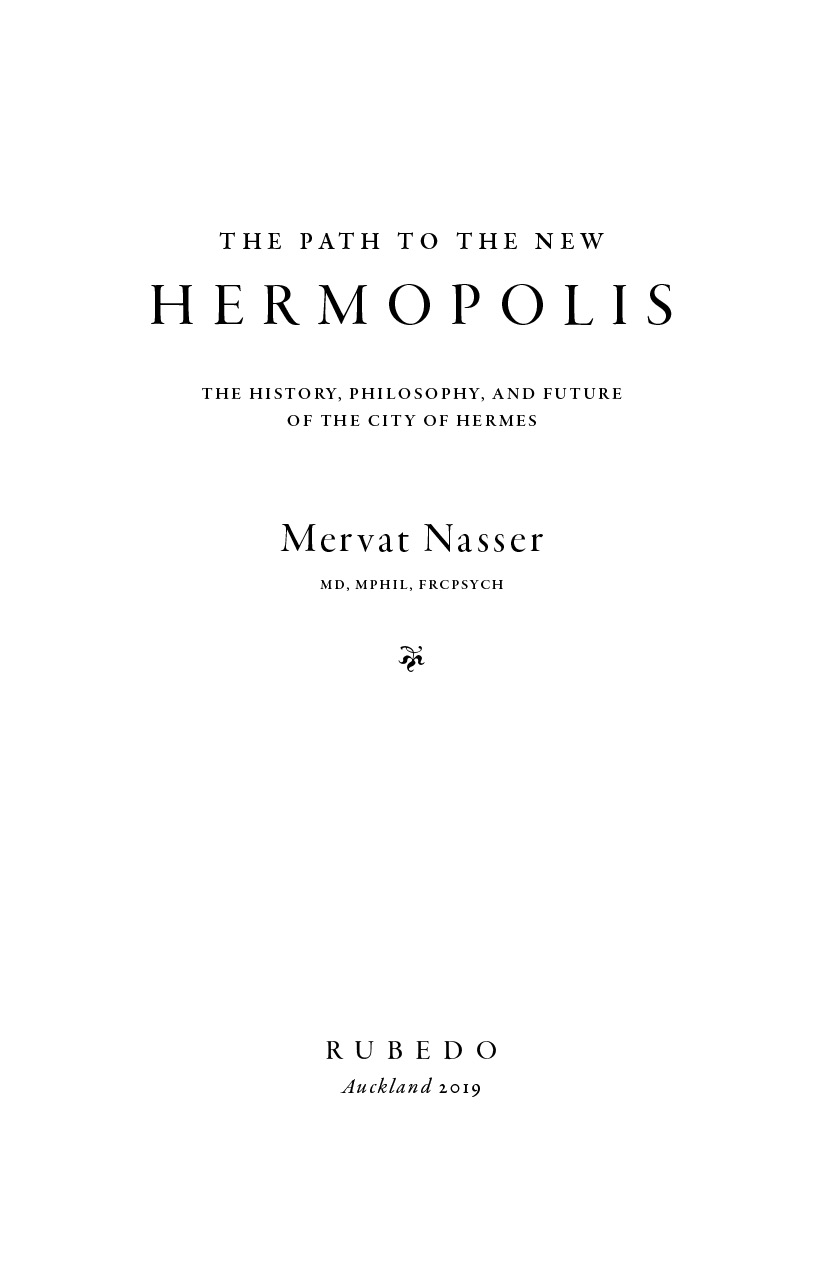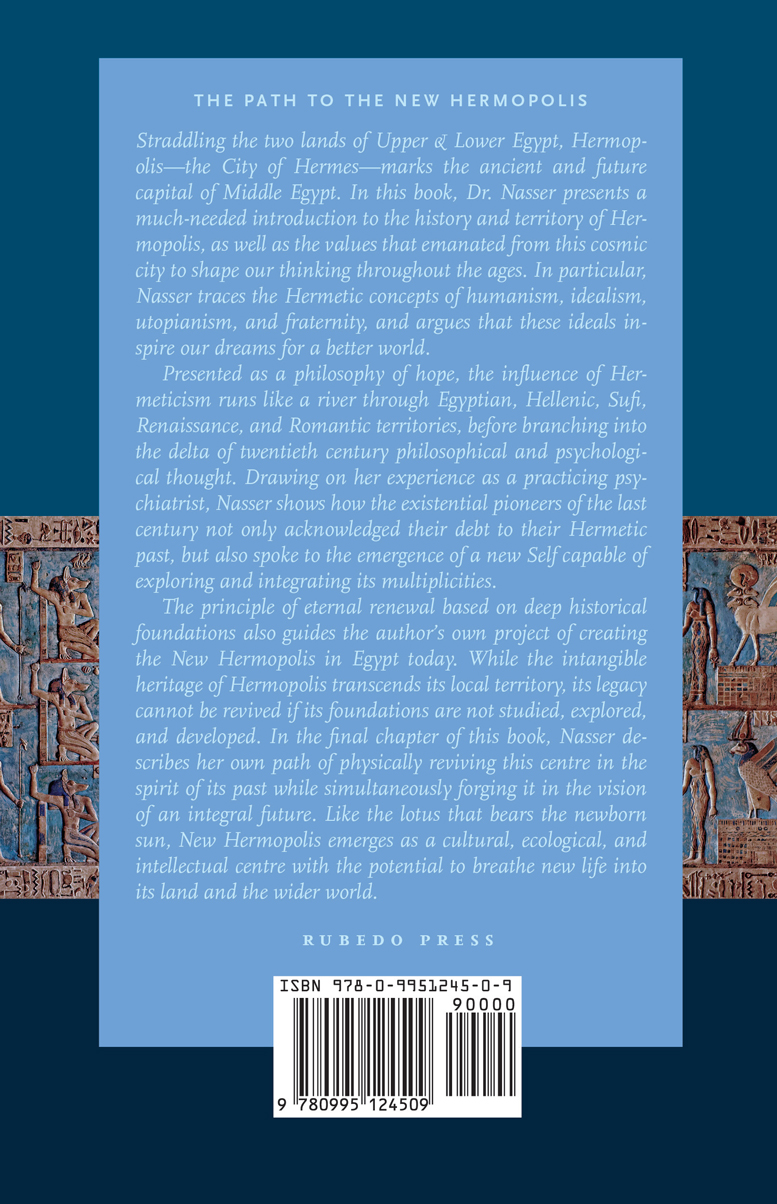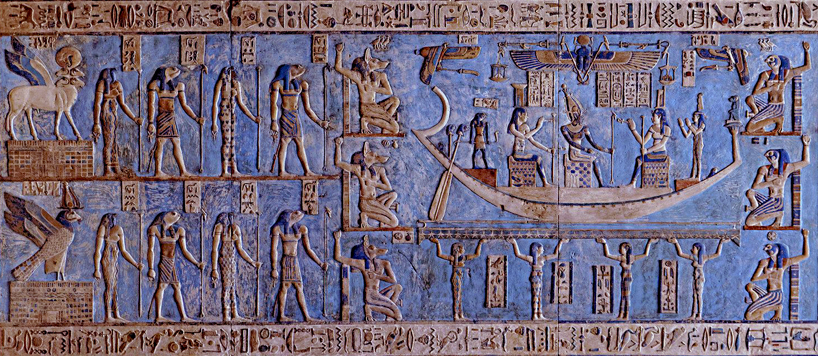


Auckland: Rubedo Press, 2019
Softcover | 5.5 x 8.5 | illustrated | B&W
Now AVAILABLE
$28.00
Price listed in New Zealand Dollars.
Approximate price in other currencies:
GBP £15.00 , EU: € 17.00, USD $20.00
The Path to the New Hermopolis
The History, Philosophy, and Future of the City of Hermes
Mervat Nasser, M.D.
Straddling the two lands of Upper and Lower Egypt, Hermopolis—the City of Hermes—marks the ancient and future capital of Middle Egypt. In this book, Dr. Nasser presents a much-needed introduction to the history and territory of Hermopolis, as well as the values that emanated from this cosmic city to shape our thinking throughout the ages. In particular, Nasser traces the Hermetic concepts of humanism, idealism, utopianism, and fraternity, and argues that these ideals inspire our dreams for a better world.
Presented as a philosophy of hope, the influence of Hermeticism runs like a river through Egyptian, Hellenic, Sufi, Renaissance, and Romantic territories, before branching into the delta of twentieth century philosophical and psychological thought. Drawing on her experience as a practicing psychiatrist, Nasser shows how the existential pioneers of the last century not only acknowledged their debt to their Hermetic past, but also spoke to the emergence of a new Self capable of exploring and integrating its multiplicities.
The principle of eternal renewal based on deep historical foundations also guides the author’s own project of creating the New Hermopolis in Egypt today. While the intangible heritage of Hermopolis transcends its local territory, its legacy cannot be revived if its foundations are not studied, explored, and developed. In the final chapter of this book, Nasser describes her own path of physically reviving this centre in the spirit of its past while simultaneously forging it in the vision of an integral future. Like the lotus that bears the newborn sun, New Hermopolis emerges as a cultural, ecological, and intellectual centre with the potential to breathe new life into its land and the wider world.
“I made an enclosure around the park
lest it be trampled by the rabble
for it is the birthplace
of every god”
—Petosiris—
New Hermopolis, Egypt
Table of Contents
Preface
1. Hermes and Hermopolis
From Thoth to Hermes
The city of Hermes
The conceptual intangible city
The tangible archæological city
The geo-Hermetica belt
Hermopolis and the genius loci
2. Migrations of the Hermetic Idea
The Hermetic notion of universal oneness
Hermetic pathways: From Alexandria to the world
Renaissance Hermeticism: The birth of humanism
The House of Wisdom in Baghdad: From self-alchemy to Sufism
The German-speaking Hermes and further tales of transformation
The English Elizabethan court, the New World and the birth of utopianism
Hermetic fraternity
The Hermetic tertium non datur
3. Hermeticism as a Philosophy of Hope
What is hope?
The Hermetic promise
The Hermetic pioneers of existence
Multiplicity of the self and the unity of being
The ‘Undiscovered Self’: Hermetic potentialities
The self and integral consciousness
Living through the mind—logotherapy
The self as ‘soul’ and ‘soil’
Towards an old/new self
4. Revival: The Founding of the New Hermopolis
Why me and why now?
New Hermopolis: Description, composition, mission
Heritage for development
Cultural heritage and cultural tourism
Other forms of heritage-inspired economy
Intellectual tourism: Itineraries of the mind
A designed space for multiple belonging
Bibliography
About the Author
Dr. Mervat Abdel Nasser (MD, MPhil, FRCPsych) is a consultant psychiatrist, researcher in Egyptology, and writer. Graduate of Cairo Medical School and fellow of the Royal College of Psychiatrists (London), Dr. Nasser holds a masters in philosophy and a doctorate in psychiatry from London University. She also has two diplomas in moral philosophy and the history of medicine. Having served as an academic and psychiatrist in England from 1977–2007, her clinical practice focused on general adult psychiatry with a special interest in the field of culture and mental health. She has a special interest in theories of education and integrative models of teaching, which are reflected in her her work as a writer, academic, and clinical tutor.
She has written psychological and philosophical commentaries on ancient Egyptian thought, collected in the book Why Did Horus Lose His Eye: A New Reading of Ancient Egyptian Thought. She has also written several books in Arabic addressed to the young reader, including an award-winning illustrated children’s series. In 2007, Mervat took early retirement from her job as consultant psychiatrist and senior lecturer at King’s College and returned to Egypt to pursue her dream of establishing the New Hermopolis. She has since dedicated herself entirely to this cause.

